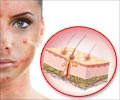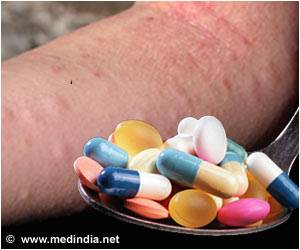What is Skin Pigmentation?
Your skin color is determined by pigments called melanin that are produced by specialized cells (melanocytes) of the skin. There are more than 150 genes that affect skin color either directly or indirectly. So there is really nothing much you can do about the natural pigmentation of your skin.
What Causes Skin Pigmentation Disorders?
Sometimes, the melanin production goes awry; either too little or too much melanin is produced, causing skin pigmentation disorders. These conditions make the skin appear lighter or darker than normal, or blotchy and discolored. Too much melanin causes hyperpigmentation and too little melanin results in hypopigmentation.
The root cause is generally attributed to internal factors such as hormones, endothelial cells, or biological conditions such as pregnancy. External factors such as ultraviolet radiation, burning, or contact with certain chemicals may sometimes cause pigmentation disorders. Stress and dietary imbalances, the precursors of many disorders, are also known to cause skin pigmentation disorders.
What happens is, melanin is formed by a series of oxidative reactions that involve the amino acid tyrosine in the presence of the enzyme tyrosinase. So, inhibiting/regulating the action of tyrosinase can halt/alter melanin production.
Most depigmenting agents thus target this enzyme. However, these agents can cause cancer and ochronosis (bluish-black discoloration of tissues) in some people. Under such circumstances, using home remedies to treat common pigmentation disorders makes sense.
Skin pigmentation disorders is accompanied by several itching.
Here are some of the common skin pigmentation disorders and their home remedies. These home remedies for skin pigmentation take some time to show results. Depending upon the condition, it may take anywhere from a week to 6 months of daily treatment.
Skin Pigmentation Disorders and Their Home Remedies
Melasma
This is a skin pigmentation disorder that appears on the face in the form of tan or brown patches, especially the forehead, cheeks, upper lip, nose, and chin. Melasma is typically seen in pregnant women. The spots generally fade after pregnancy, but sometimes they just don't go away. It may also occur in women on birth control pills or postmenopausal estrogen. Well, men too can get melasma sometimes. Some Ayurvedic practitioners believe that this disorder can also be caused by nutritional deficiencies, so that can explain why men too might get melasma.
Home Remedies for Melasma:
- Orange Paste: Grate the skin of an orange and make a paste/gel with few teaspoons of milk. Leave it on for half an hour and then massage gently and wash it off with warm water. Exfoliate your face at least 3 to 4 times a week with this paste. Exfoliation encourages cell renewal and removes the dark blotches.
- Aloe Vera Juice to Lighten Dark Spots: Gently apply aloe vera juice or gel on the affected area and leave it on for 15 minutes. Wash it off with warm water. Aloe vera contains mucilaginous polysaccharides that can effectively lighten dark spots.
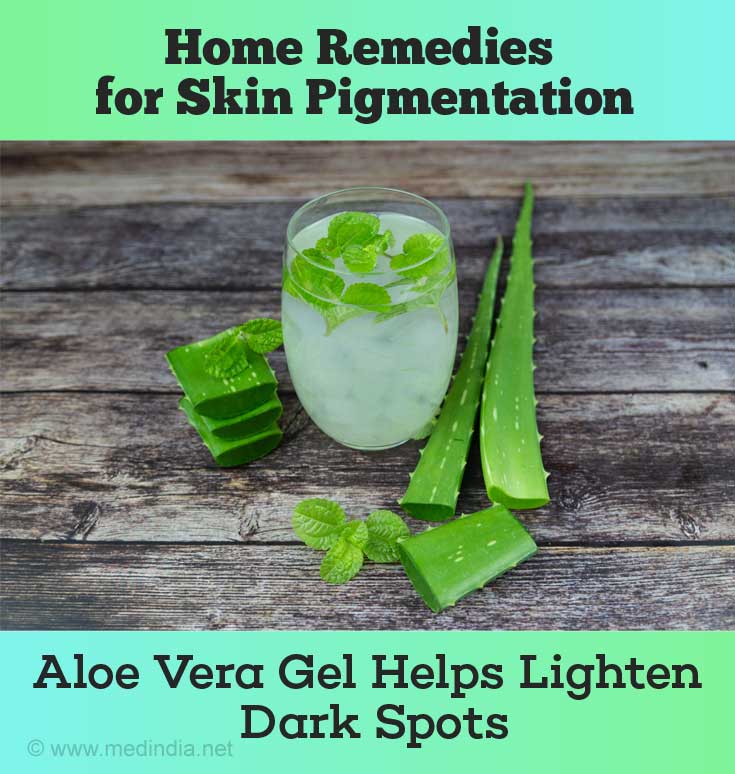
- Turmeric Powder and Milk: Make a paste of 5 tablespoons of turmeric powder in 10 tablespoons of milk and apply it all over your face. Gently massage your face and wash it off with warm water after 20 minutes.
- Almond and Honey Face Pack: Make a face pack with almond and honey. Apply and wash it off after 15 minutes.
- Triphala Choornam: Ayurvedic practitioners recommend taking 1 tablespoon of Triphala Choornam with warm water at bedtime to accelerate healing.
- Use Sunscreen: Sunlight worsens the condition, so use sunscreen at all times.
Vitiligo
Vitiligo It is a disorder where the immune system of the body attacks the pigment cells, and the consequent loss of pigments causes smooth, white skin patches, usually around the mouth and eyes, or on the back of the hands. In some people, the skin discoloration can appear all over the body. Vitiligo can also occur if you suffer from the disease associated with immune system disorder such as diabetes, pernicious anemia, thyroid disease, or
Home Remedies for Vitiligo:
- Foods to Avoid: It is best to avoid sour foods including sour fruit juices, says Dr. Rajesh Shah, Director at Life Force. This is because sour foods shift the pH balance of the body to acidic, but for melanin production, you need a more alkaline base. Avoid seafood too because of contaminants such as mercury.
- Keep Hydrated: Drinking water kept overnight in a copper vessel can help reduce vitiligo patches. Make it a habit.
- Turmeric and Mustard Oil Paste: Prepare a mixture of 5 teaspoons of turmeric powder in 250 ml of mustard oil. Apply the paste twice daily to the affected area. It may take up to a year to see the results.
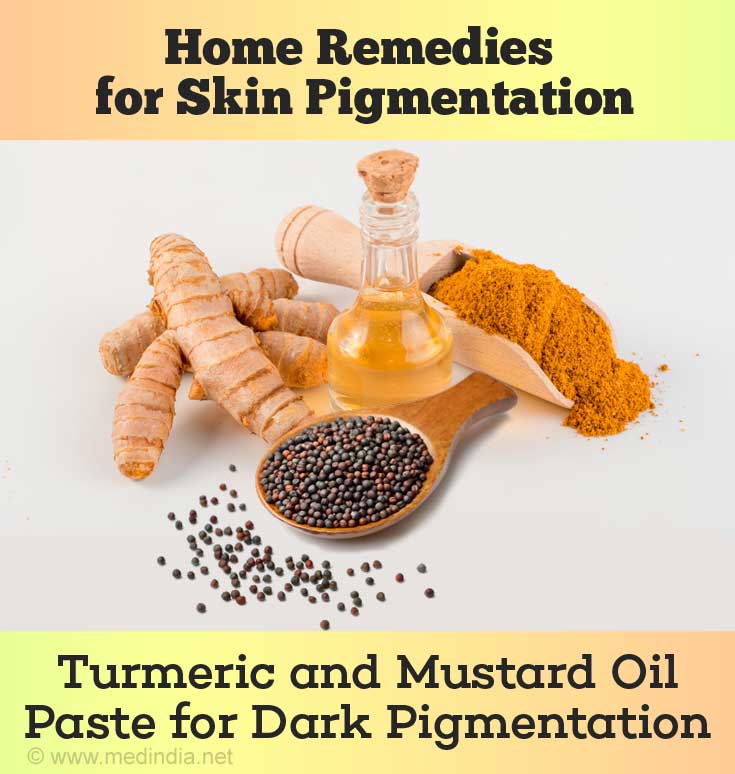
- Bakuchi and Coconut Oil Mix: Powder the seeds of Bakuchi (Psoralea coryifolia), mix it in coconut oil. Apply to the affected area. Not exactly a home remedy, but you can buy Bakuchi oil straight away and use it topically for vitiligo for more effectiveness.
- Bakuchi and Tamarind Seeds: Soak Bakuchi seeds and tamarind seeds in the water you washed the rice grains with and keep it for a week. Grind it to a paste and apply to the leukoderma patches. It is said to give quick results.
- Ginger Juice: Apply a mixture of ginger juice and red clay to the affected area. It might take a long time to heal, but it is effective.
- Radish Seeds and Vinegar: Mix 25g of the powdered white radish seeds and two teaspoons of vinegar. Apply it over the patches daily. This is also a long treatment.
Post Inflammatory Hyperpigmentation or Hypopigmentation
Sometimes, a skin infection, tan, blisters, sunburn, other burns or other trauma to your skin, may cause a decrease or increase of pigmentation in the affected area. These pigment alterations can be reversed and home remedies work very well for such conditions.
Home Remedies for Hyper/Hypopigmentation:
- Almonds, Cream and Lemon Juice Pack: Make a paste with 5 almonds, fresh cream and a few drops of lemon juice. Apply to the affected area and leave it on for 15 minutes. Wash it off with water.
- Papaya Face Pack to Remove Sun Tan: Apply a face mask of mashed papaya or use papaya juice on the affected area. It's a good home remedy for tans and sunburns, plus it will smoothen and improve your skin complexion.
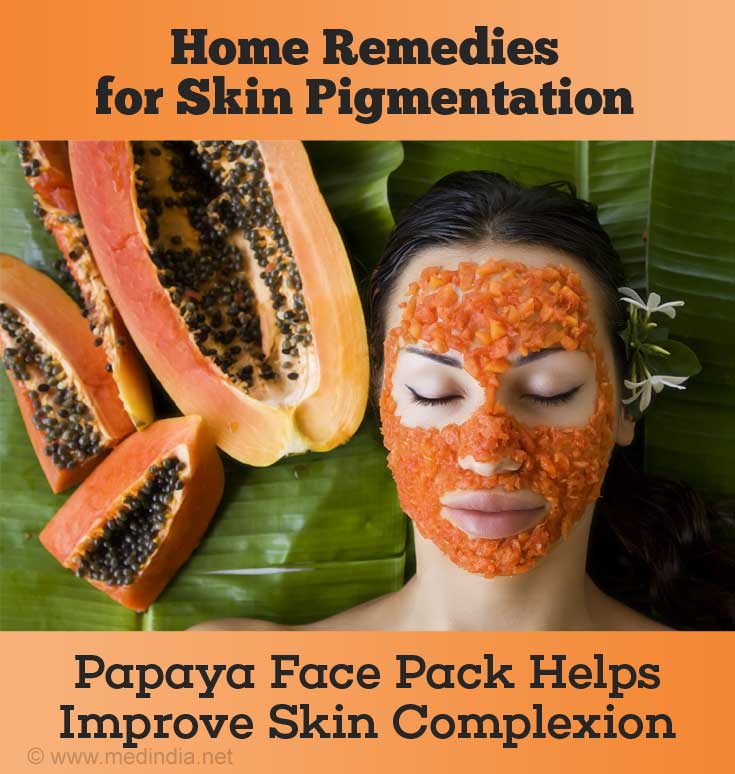
- Tomato Juice, Oatmeal and Yogurt Mix: Make a preparation of tomato juice, 2 tablespoons of oatmeal, and half a teaspoon of yogurt. Apply on the patches and rinse it off after some time (or when it dries completely). Do it daily till you see results.
- Turmeric Powder and Lemon Juice: Add a teaspoon of lemon juice to a teaspoon of turmeric powder. Apply the paste to the affected area and leave it on for 15 minutes. Wash it off with cold water. Do not go out into the sun with the application on.
- Aloe Vera Gel for Sunburn: Aloe vera gel heals sunburn quickly. Slit open a leaf of aloe vera and apply the gel directly to the burn. Do it 5 to 6 times daily till you see improvement.
- Cornstarch Protects Against Sunburns: Another home remedy for sunburn is to dust cornstarch to the chafed areas. However, don't apply anything if the burn is blistering.
- Mint Leaves to Reduce Dark Pigmentation: Grind a few mint leaves and mix it with water to form a paste. To lessen dark pigmentation, apply the paste on the melanin spots and rinse it off after 15 minutes.
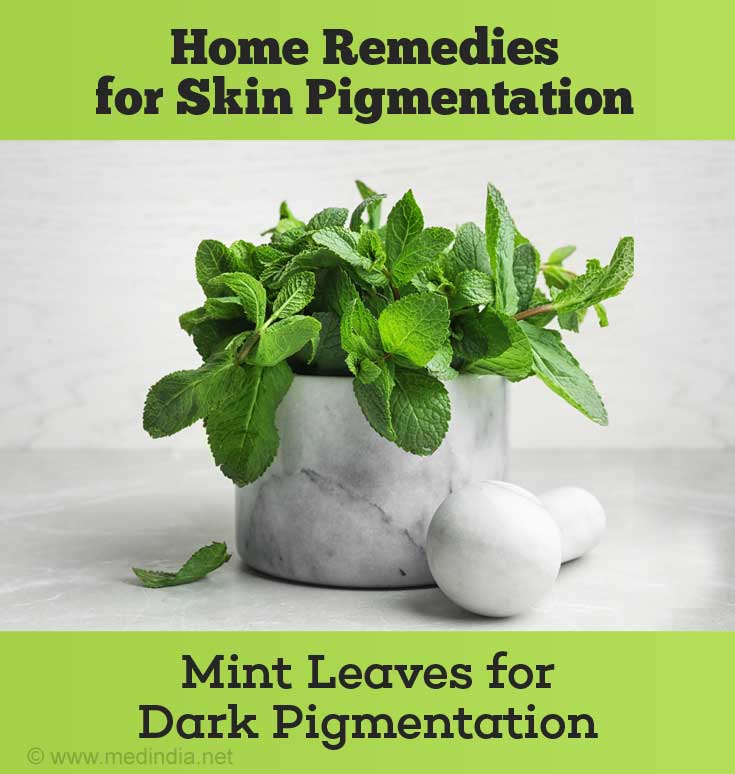
- Lemon Juice Cleanser: Another way to lessen hyperpigmentation is to rub a cut-half of a lemon directly to your face. If you are not comfortable with this, dilute.
Albinism
Albinism is an inherited disorder caused by the absence of the pigment melanin. It can occur in skin, hair, or eyes. Unfortunately, there is no cure or treatment for this in conventional medicine, let alone a home remedy. People with albinism must use a sunscreen at all times because they are much more likely to get sun damage and skin cancer.


